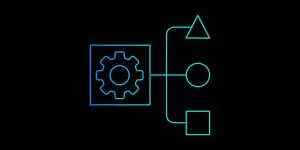Application teams need reporting. They specifically need pipeline analytics to measure and optimize metrics, such s deployment frequency and deployment success, to find and fix practices that are slowing them down and orchestrate releases. In its latest Continuous Delivery and Release Automation Wave Report, Forrester noted that reporting can be a “weak spot” for much of the Continuous Delivery and Release Automation segment.
Thoughts on Cloud recently asked a virtual roundtable of DevOps industry experts and analysts to share views on the future of release automation for enterprises. Participants included Torsten Volk, managing research director for containers, DevOps, machine learning and AI at Enterprise Management Associates; Tony Flath, a tech and media consultant and president of TmanSpeaks, Ltd; and Matthew P.Skelton, head of consulting for Conflux and co-author of the forthcoming book Team Topologies.
Thoughts on Cloud: A recent IBM Institute for Business Value survey found that 72 percent of C-suite executives in large enterprises are creating their own disruption to protect their market share from being eaten by a nimbler startup. How do deployment automation and continuous delivery solutions like IBM UrbanCode facilitate proactive disruption?
Torsten Volk: While implementing continuous delivery is relatively simple in a greenfield cloud native environment, the transformation toward a state of continuously releasing and validating new software features is much harder within an enterprise context, with its traditional hairball of legacy technologies and rigid processes that often have formed over years or decades to minimize operational risk and cost. UrbanCode embraces this enterprise use case by providing a universal toolkit for gradually implementing DevOps principles without dramatically increasing operational risk and also without replacing the existing toolchain.
Tony Flath: Three things pop right to mind: speed, secure and cloud. Agreed, organizations need to be able to create and deploy applications that better utilize emerging technologies and advanced artificial intelligence capabilities to gain or maintain a competitive advantage. UrbanCode enables quicker time to market, with enterprise scalable security built in on a continuous hybrid multicloud delivery design.
ToC: How important is release orchestration, the ability to bring numerous disjointed pipelines together under one release management capability, to digital transformation?
Torsten Volk: Developers often are in love with their individual tools and will not be friendly to anyone who tries to rip them out of their hands. Therefore, successful release orchestration needs to harness and further fuel this developer enthusiasm by providing a set of universal “guardrails” to optimally synchronize DevOps pipelines through universal observability, orchestration and automation.
Tony Flath: True digital transformation comes down to economics or business value delivered by technology. Having the capability to quickly deploy applications en masse with prebuilt templates, artifact repositories and maps really amps up capabilities at a macro level to manage numerous application nodes made up of prebuilt web, app and database designs. This is a true enabler and game changer for multicloud hybrid control; it’s true digital transformation.
Matt Skelton: Coupling at deployment time is really another kind of monolith, so we should generally avoid aiming for large orchestration of releases. For managing complicated external dependencies, release orchestration can be helpful, but our aim should be to reduce the need for orchestration.
ToC: IBM UrbanCode is offered as four separate products: Build, Deploy, Velocity and Release. Does this add complexity or flexibility to enterprise buying decisions?
Torsten Volk: Enterprises do not buy an entire DevOps platform, but require certain universal tools to alleviate their current pain points. Splitting UrbanCode into four products enables customers to start wherever there is the most pain and then, gradually, optimize the rest of their pipeline.
Tony Flath: UrbanCode adds flexibility that makes it possible for an organization to take DevOps to a whole new level to scale and deploy applications that harness the capabilities of cloud, big data and analytics, then deploy across cloud, on premises, edge and mobile. Key benefits to an enterprise include inventory management, artifact repository, turnkey hybrid cloud enterprise modeling, enterprise security and audit trail. Big app controls best harness the capability of big data.
ToC: What does the future of DevOps for the enterprise look like? How is IBM UrbanCode positioned to support it?
Torsten Volk: The future of DevOps requires what I like to call “continuous everything”. This means that security, compliance, performance, usability, cost and all other critical software components are automatically and continuously implemented without slowing down the release process. In short, the optimal DevOps process is fully automated and directly synchronized with rapidly changing corporate requirements.
Tony Flath: Think of DevOps this way: old DevOps facilitated the small community where developers provided lots of hands-on support in an isolated, difficult-to-move environment. The future of DevOps becomes like a booming metropolis of information with many automated tools, procedures and prebuilt structure components that enable ease and flexibility to move, test and change quickly and securely to keep up with the pace of change.
Matt Skelton: In some organizations, DevOps has come to mean largely just infrastructure automation. The future of DevOps for enterprises is really a return to the first principles of targeted collaboration, well-defined team boundaries, and loosely-coupled, high-cohesion APIs between teams and software systems.
UrbanCode client case studies and industry resources
Learn more about UrbanCode by reading the below client references, which demonstrate a range of quantifiable business benefits.
NBCUniversal scales DevOps across a large multi-speed IT enterprise
Bendigo and Adelaide Bank improves agility with DevOps
Rabobank uses UrbanCode and Rational Test to gain agility on IBM Z
Register for your free copy of the “The Forrester Wave: Continuous Delivery and Release Automation, Q4 2018” report.
The post Industry experts weigh in on the future of automation and DevOps appeared first on Cloud computing news.
Quelle: Thoughts on Cloud

Published by